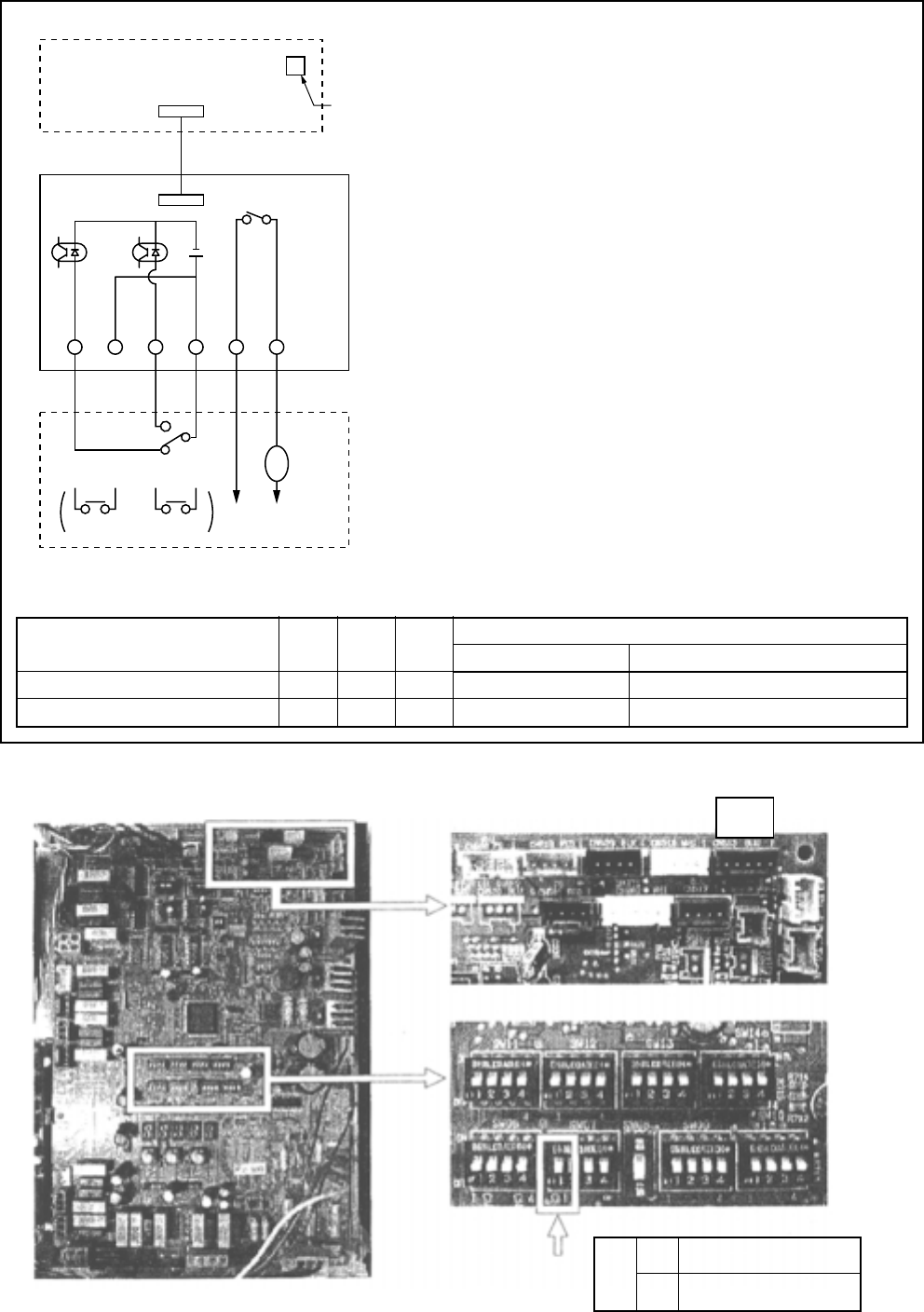
82
7-2-2-1. Power Peak-cut Control (Standard)
Setup when Power peak-cut control requested
Power peak-cut control board
(TCB-PCDM2E)
Power peak-cut ON signal is input.
Power peak-cut OFF signal is input.
SW1 SW2 L1
ON OFF ON
OFF ON OFF
Outdoor unit interface P.C. board
SW07: Bit 1 OFF SW07: Bit 1 ON
0% (Forced stop) Capacity 60% (Upper limit restriction)
100% (Normal operation) 100% (Normal operation)
CN513 (BLU)
Header outdoor unit interface P.C. board
(Setup
to header
unit only)
SW07
Set up Bit 1.
Connection cable
Power peak-cut
control board
PJ17 (4P WHI)
L1
SW2
In case of serial signal
In case of pulse signal
SW1
OFF ON
Display
Operation
Power
supply
Max. AC240V
Procured
locally
DC
1.2V
SW07
Bit 1
Operation stop to 100%
ON 60% to 100%
OFF
ON
CN513
Blue
Setup positions of header outdoor unit
interface P.C. board
Connector position detail
Switch position detail
Operation
The upper limit capacity of the outdoor unit is restricted
based on the demand request signal from outside.
L1 : Display lamp during power peak-cut control
SW1 : Power peak-cut ON switch
(ON during demand, OFF in normal time) ∗1
SW2 : Power peak-cut OFF switch
(OFF during demand, ON in normal time) ∗1
*1
Input signals of SW1 and SW2 are acceptable even if they
are longer then pulse input (100mm.sec.) or serially made.
However do not turn on SW1 and SW2 simultaneously.
∗ Be sure to prepare a contact for each terminal.
Relay contact capacity of “operation” port
Below AC240V 0.5A (COSØ = 100%)
Below DC24V 1A (Non-inductive load)
Note) When connecting non-inductive load such as relay
coil to L1 load, insert the noise surge absorber CR
(In case of AC) or counter electromotive-proof diode
(In case of DC) into the bypass circuit.
Power peak-cut control board: TCB-PCDM2E
Outdoor unit destination to be connected becomes the
header outdoor unit (U1).


















